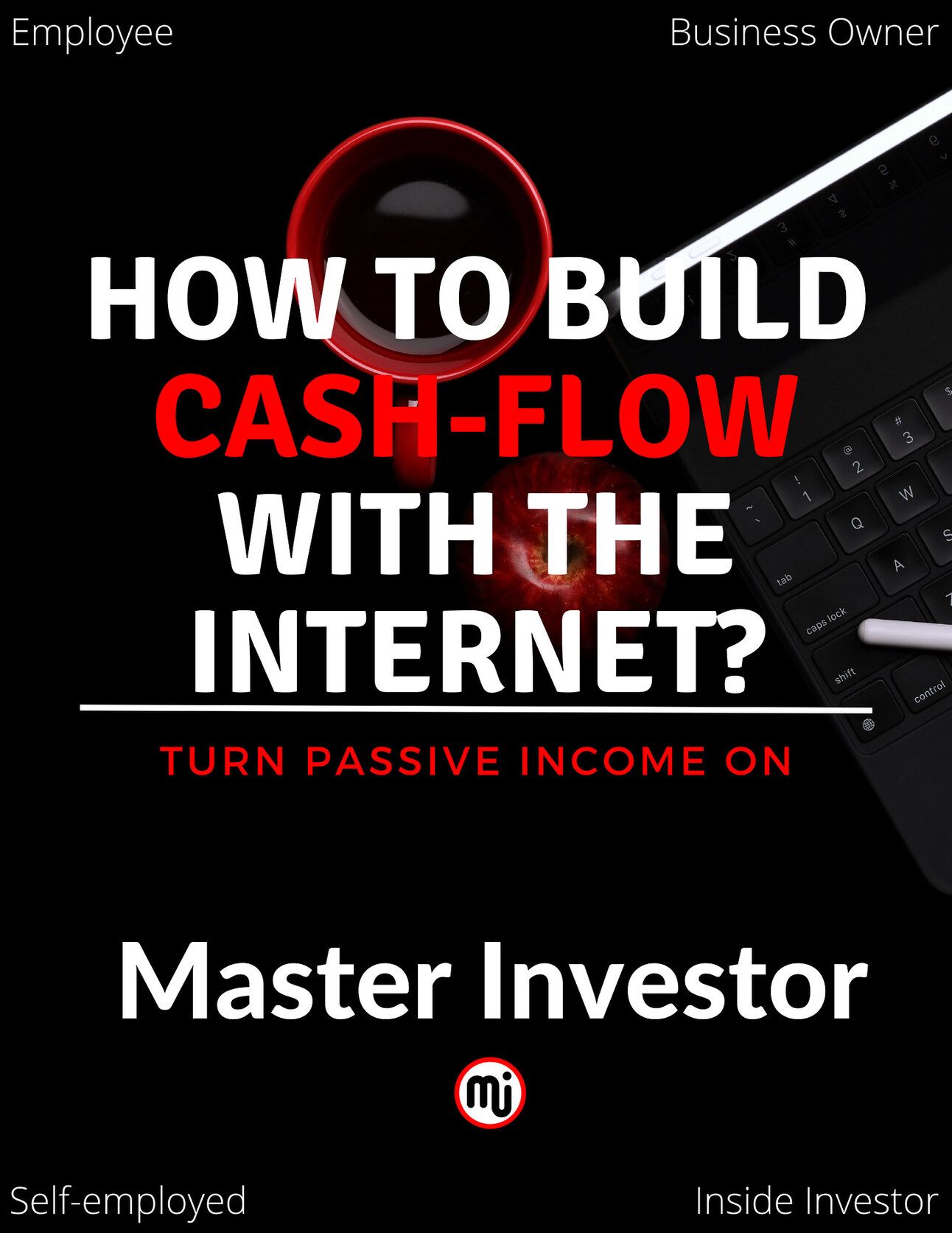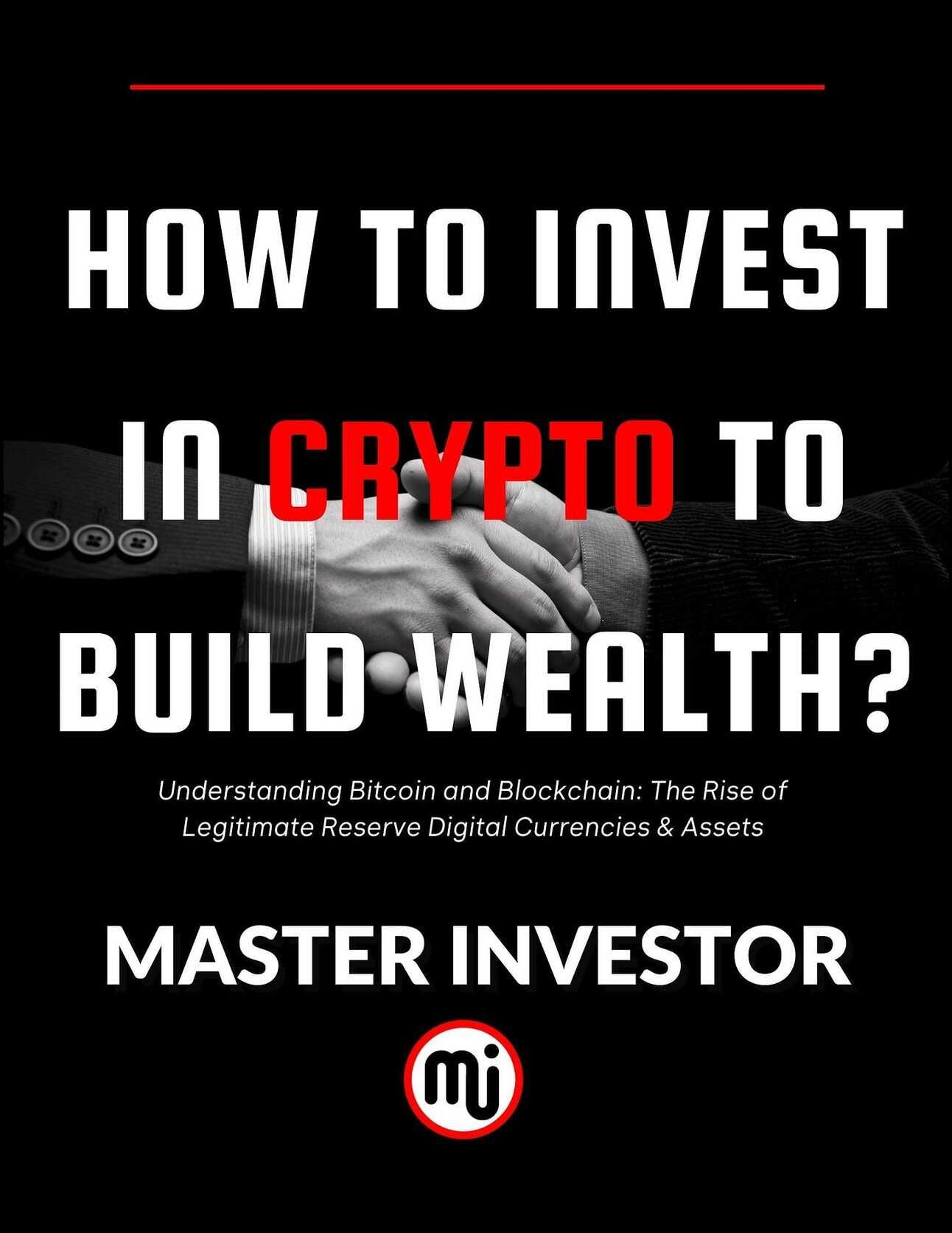
Summary:
The next financial catastrophe is not far, and now is the time to prepare.
Remember: savers are losers. Saving is not a secure plan for our future
The best way to get ahead is to secure a financial education - the rest will come our way
The world and economy is on the approach of a major economic collapse. We know the economy gos up and down. We must learn how to spot opportunities even during crisis. As a wealthy entrepreneur we must see opportunity when we hear crisis. We cannot escape it, but we can prepare for it with a financial crisis plan.
This is one of those rare postings that is really pertinent in light of current events. For the sake of simplicity, this article summarizes what our advisors have taught us.
Old school money
The only plan for a financial catastrophe offered by so-called experts is to go to school, acquire a job, work hard, save money, purchase a house, pay off debt, and invest in a long-term, well-diversified portfolio of equities, bonds, mutual funds, and ETFs. The trouble is, everybody who followed that advise is now doomed since the entire thing is collapsing like the Hindenburg.
We must prepare for the impending massive financial collapse. We want to warn people and show them how to prepare for and profit from it. Unfortunately, the crashed started and arrived in March 2020.
Furthermore, we believe the economy may not recover; rather, the globe has been permanently altered which has created tremendous opportunities for all to capitalize on them.
We have anticipate the desperation of Wall Street, the US government, or the Federal Reserve Bank. We never know beforehand or have no notion they might engage in quantitative easing, which would essentially violate the Federal Reserve Bank's economic regulations.
The printing of trillions of dollars in recent months has resulted in losses for savers. Why would we save money when the government is printing money? Saving money means losing money since the dollar's purchasing power (i.e. value) is rapidly declining. Good debtors are winner and wealthy. Savers are looser and they hold into something that looses value daily due to the way the economy works today which through printing money. The printing has become eon much that we have entered quantitive easing. Agin the one who have financial education will find more wealth in this economy than ever before.
We are undoubtedly entering a huge recession, probably a depression, and potentially an economic collapse. That's how scary things are now.
If we are reading this blog, we are preparing to survive the financial catastrophe. Here, we will get an outline of what a true financial education is, as opposed to the FAKE crap that Wall Street promotes.
Investing in the stock market for the long term is a suicide mission, especially after March 2020, when the largest crash occurred and continues to occur. It's still becoming bigger. The true crash, which you've probably heard nothing about, began in September 2019. That's when the shadow banking system collapsed.
The End of the Shadow Banking System
So, what is the shadow banking system? Basically, it's a covert system in which banks lend money to other banks for relatively short periods of time, such as 24 to 48 hours, in order to make their books appear good. It is a buddy system with extremely low interest rates and loans.
However, the shadow banking system collapsed in September 2019, and the world's largest banks, including Deutsche Bank, hedge funds, and other major financial institutions, ran out of money. There wasn't enough money in the globe to cover or disguise their debt, therefore shadow bank loans skyrocketed from very low interest rates to 10%! A massive and unexpected inflation.
This suggests that the markets have lost trust in our banks and financial institutions. The banks and financial organizations lacked faith and trust in one another. That was the first hint that the economy was weakening.
To make matters worse, while banks raised interest rates on their largest financial institutions, consumer and public market interest rates fell.
So the major banks are hiking interest rates on their fellow banks because they don't trust them, while also offering inexpensive rates to peasants outside the system, average citizens, to buy investments and equities.
This pushed the stock market to all-time highs.
So, recall, in December of 2019, the stock market was at an all-time high, and unemployment was at a record low of 3%, but everyone who was a professional investor knew it was all about to crash.
Everyone else, the average people who had little financial education, took advantage of the low interest rates and invested in the stock market. Essentially, competent investors exited the market, while all of the suckers flooded in.
The Fed and powerful bankers were aware of the disintegrating internal financial system when the Coronavirus pandemic occurred. They needed a scapegoat or an excuse. Enter Coronavirus.
As a result, the general public now believes that the real crisis is one of Coronavirus. However, it was more of a smokescreen, a diversion from the current financial crisis. This is not a controversial assertion, but rather a suggestion that the virus was a smokescreen for the real collapse. The question is: how far will this collapse go? We do not believe the crash is over. We think it's just beginning.
The upcoming crash has the potential to be the largest in Earth's history. We're on the verge of depression right now. The latest slump, which began in 1929, lasted 25 years.
So, if this depression is far larger than the Great Depression, how long do we think it will last? Is the classic advice to invest for the long term still relevant

Real Estate Crisis Management Action Plan
We must recognize that we have entered a strange new world. This is scary. However, it is beneficial to be concerned because nothing is worse than someone being comfy in a crash.
Many of you have expressed an interest in real estate. The following are some insights into current real estate activities.
For example: there is a real estate possess over 7,000 residential units. When the crisis struck, they were concerned about their renters' capacity to simply pay the rent. Many are unemployed, struggling, and terrified. Many of them are having a hard time right now. In April, their overall rentals were down only 7%. 7% of the population did not pay rent. In May, it dropped to 23%. The trajectory remains uncertain.
There are two principles in real estate investing that have been followed since the beginning and continue to be applicable now.
Real Estate Investing Principle #1
One of the fundamental concepts they've always upheld is that employment drives real estate.
With so many people projecting that 50% of small companies in shopping malls will go out of business, it's time to consider alternative places.
For instance, consider Orlando, Florida. Disney World was closed down. Thousands of jobs were lost. Las Vegas is the same thing. It was a ghost town. Look at Houston. Oil prices fell. This is a concern since they will have even higher unemployment than the rest of the nation.
Airbnb and VRBO owner-managed holiday rentals are no more. If you need to travel, this is quite difficult. So, where are the opportunities in real estate today? What's the bright side, assuming there is one? Where's the opportunity?
Employment fuels real estate. So we must keep a close eye on new employment sectors as they emerge and develop in this new environment.
Real Estate Investing Principle #2
To summarize, principle number one states that employment drives real estate. If we can discover a place that is crisis-proof in terms of jobs and employment, we should look into the real estate options there. We take our investment money and go where people work. If everyone else is moving, we should follow suit.
The second principle is to avoid going after high-end properties.
Do not invest in high-end properties because when there is a crash or a correction, the first people to downsize are those who own high-end condos and houses. These high-end renters will now move into what we call "B class" properties, which are middle-of-the-road properties. People will be compelled to downsize, yet they still need a place to live.
Whereas many landlords are anxious about their tenants not paying rent or, worse, abandoning their unit, we are in a far better situation. Following this philosophy has helped us avoid losing numerous renters.
However, there is more to it than simply making the right purchases. We, as a landlord, are partners with our tenants. We must recognize them as humans, and there are many of them in need right now. As a result, it is critical that we take action to demonstrate to tenants that we are available and eager to assist them at this difficult time.
Our real estate is as good as our tenants are and location where it is located.
For example, every month, we can give out $100 coupons to support tenants.
We can also develop payment options to keep individuals in their houses even while they are out of job. We can chose not to evict anyone; it can more vital for us to assist individuals in getting through this, which many real estate owners have done by offering payment plans, vouchers, and other similar solutions.
Lets use our creativity to keep the cats flowing coming into our pockets.
Supply and Demand Issues with Airbnb and VRBO
Another thing we may expect to see during the financial crisis is an increase in real estate supply.
Airbnb and VRBO vacation rentals are going to struggle and may go out of business. So, shortly, there will be an influx of inventory. And that means there will be plenty of opportunities for those who know what they're doing.
However, if you have not received financial education, please do not invest your hard-earned money in something simply because you read this 'hot tip' or it sounded good. Get your financial education first. Remember what rich dad taught you: a lousy investor may ruin the best deal, while a smart investor can turn around the worst one.
We will make mistakes, so start small.
Now is the time to start planning for when such possibilities arise.

Financial Crisis Plan: Business Opportunities
Camping-related businesses appear to be doing well. Also, "do-it-yourself" stores such as Home Depot and Lowe's. Many new digital enterprises are emerging to teach people how to do things for themselves.
Regional warehouses. Everyone desires fast delivery. Regional warehousers are looking for sites to store their goods and services.
The point is that we are in a unique situation in which we have no notion where we are headed. But the best thing we can do is pay attention to what's going on. Look for opportunities and consider how you may invest in them. There is always an opportunity to start our own business.
Everyone is asking, "What should I do?"
Markets go up and down. Unfortunately, if a person is on autopilot and still has a job that pays into a 401k, they will quickly realize they have lost control. They have no control over whether their 401(k) increases or decreases. It's like being in a poker game.
At a poker game, participants frequently reveal their hands. When you look at the aftermath of this crash, you'll notice that the market truly showed its hand. It actually expressed how it felt about the stock prices within it. And it was unflattering.
The only thing that kept things from getting worse was the Federal Reserve dumping trillions of dollars into the market.
So, when it comes to predicting what will happen in the future, you really just have two options. You can have a victim attitude, like a helpless worker ant, and say, "tell me what to do," or you can say, "No, I want a control mindset." A context for schooling."
Right now, everyone is wondering what to buy. Gold? More real estate? Stocks? Instead, people should ask, "What should I study?" What we need to do is invest in our financial education.
Conspiracy or not. The fact is that the pandemic has caused 30 million job losses.
It will be an interesting ride now that we are in the post-coronavirus era to watch how far the Fed will go to keep the stock market rolling. How much money will be printed?
The recommendation is not to acquire stocks, bitcoins, gold, or anything else. The recommendation is for us to realize that now is the time to become as smart as possible.
We live in the information age. But be careful, because we are also living in the MIS-information age, which presents an excellent opportunity to improve our intelligence. When you see something on Facebook or in the news, practice saying, "Well, do I believe that, or not?"
So, in a world when individuals can say anything, our financial education will get us through.
So, the actual question is, "What should I do now?" Do you take the 'advice path' or the education approach? That decision is entirely up to you.
A person can spend their time watching Netflix until they have seen all of the movies, or they may read a book about investing, real estate, stocks, or taxes. Perhaps we shall take an online course or hire an investment coach. In the post-coronavirus world, those who are financial educated will live and thrive.
Who knows what's genuine and what's not? Many people make decisions based on opinions rather than facts. We need to gain a financial education.
We must find the facts for ourselves; otherwise, we will be acting on opinion and risk being the victim of the next 'hot tip'.
Be anti-ignorance. The entire concept of the 401(k) is absurd because it promotes the idea that all you have to do is go to work, get a job, and put money in here. People can remain naive about money.
However, investing our own money without proper education is likely to be considerably riskier. Is it prudent to invest in stocks if we have no prior knowledge of them? No! Is it wise to invest in real estate if we have no prior experience with it?
No! Is it prudent to invest in a business if we have no prior experience with it? No!
We will learn how to invest in a variety of ways.
If we're right, being prepared is more important than making predictions right now. And to those who advise you to buy now and hold, we wish you the best of luck.
For example, following the 1929 crash, the market remained flat for 25 years. 25 Years! So if a person is 70 years old and they hold for the long haul, they will be 95 years old before the see anything. Does that sound like a solid financial plan to you?

Choose our teachers wisely when making our financial crisis plan
Wise people seek the best teachers. Don’t trust financial planners. They are not teachers nor inside investors. Surely they are good guys, personally, but they are sales people. They are just trying to put food on the table. They are not wealthy. Should we take advice from them?
Learning from genuine teachers is now easier than ever. It's a new world in terms of how people convey information using the internet.
So just think about it. It's a brave new world. However, if people continue to do what their mother and father did, they will undoubtedly face difficulties and get the same results if the are operating with the old rules of money.
At Master Investor, we frequently hear the phrase "People wish they had a wealthy family when the were growing up." While we are grateful for everything we learned from our mentors, but it is not like they do it for us. We must take action to get our own results. Building wealth is something we learn through actively investing. Today is easier than ever to create wealth. Master Investor is the sours of the wealthy mindset. I don't teach but we are a financial investor from the inside. Go take a real estate course or any other type of business course to help us build our asset column with assets that e control and produces passive income and sometimes capital gains income.
We can learn how to invest in real estate with no money down. There many courses we can take to learn the skills we need to build wealth. A few months later, we can purchase a property with no down payment, which alter our financial lives for the better.
If we can purchase anything for nothing. We actually tap into the power of our brain, which is located between our left and right ears. We can now invest without spending anything. We can invest with nothing. We may start investing with nothing. We can invest with nothing. This is the true power of financial education.
That's significant because, while we read this, we are probably thinking to ourselves, "I'll invest when I have money." but no, because like we mentioned and shown you above that we can make money for nothing by “raising capital” which is the job number one of a wealthy entrepreneur.
Start investing in high quality financial education, by reading our financial eBooks:



Lucrative resources and tools:
Follow us on Instagram.
Listen to our Podcast.
Subscribe to our Newsletter.
Follow us on Tiktok.
Purchase a business digital Course.
Like our Facebook Page.
Join our Inner Circle.
I am reading: Get Our Financial Action Plan Ready
Comment, like, share and follow for more High Quality Financial Education Made Simple.

